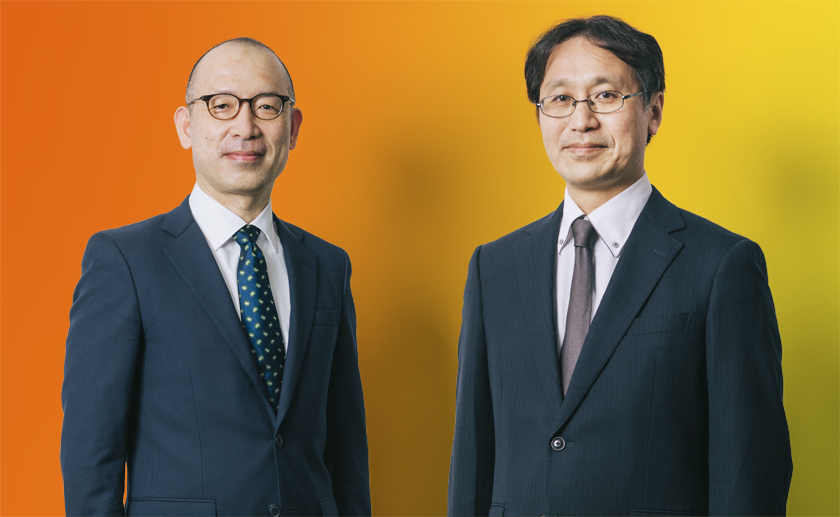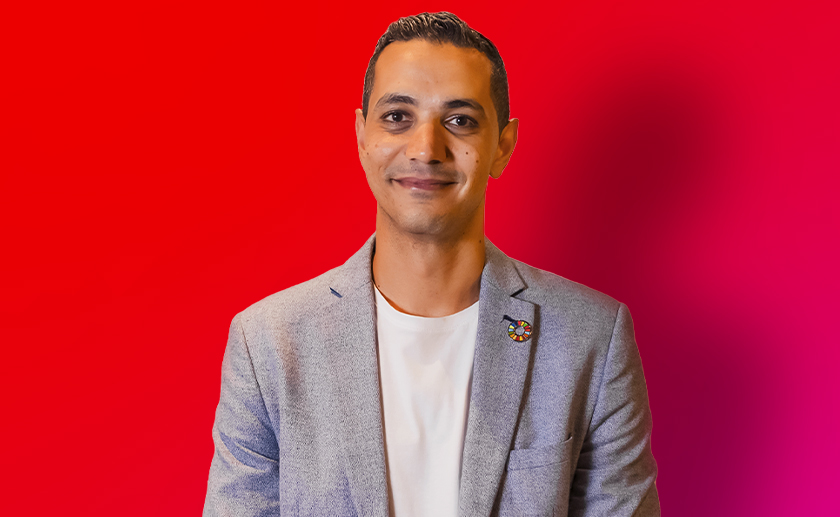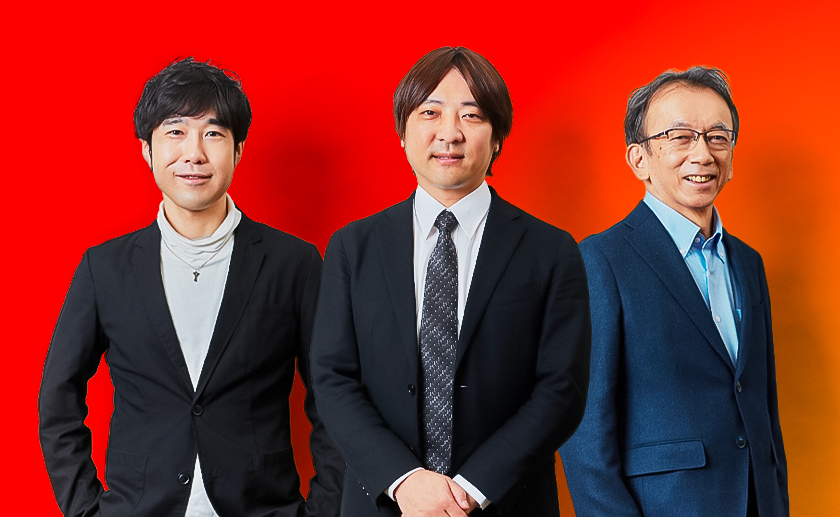
Contents
- Using Fugaku to combat COVID-19
- Support for a critical medical situation
- Using Fugaku for molecular-level simulations
- Professor Okuno's impressions of Fugaku
- Performance 100 times greater than K computer
- From points to lines
- Connecting Japan's world-class technology to the future
- Further evolution of Fugaku to focus on usability
Using Fugaku to combat COVID-19
To combat the COVID-19 pandemic, RIKEN brought Fugaku into operation in cooperation with MEXT(*) in April 2020. Fugaku is a supercomputer that RIKEN has jointly developed with Fujitsu.
This project aims to provide technical support for combating COVID-19 by using Fugaku's computational power to discover effective new drugs and pandemic management measures. In this article, we interviewed Yasushi Okuno of Kyoto University about how Fugaku is used in the project. *MEXT: The Ministry of Education, Culture, Sports, Science and Technology in Japan
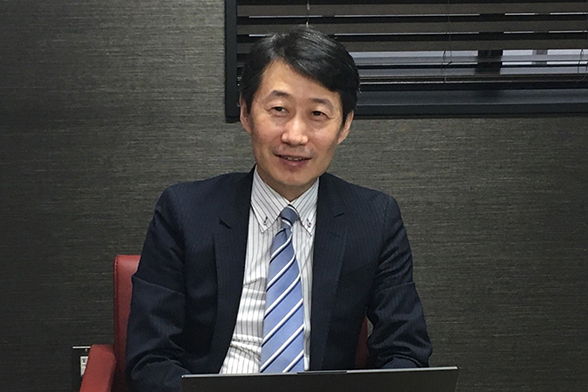
Yasushi Okuno, Ph.D.
Professor at Department of Biomedical Data Intelligence, Graduate School of Medicine,
Kyoto University
Support for a critical medical situation
―― Please tell us what you thought when you heard about using Fugaku for COVID-19 therapeutic agents?
Initially, Fugaku was scheduled to start operations in FY2021 and I thought we would have a little more time before it was put into use. However, I was feeling a tense atmosphere building up in the medical frontlines near me amid the pandemic. From a personal desire to help out with the situation in whatever way I could, I accepted the offer to join this project.
I was previously using the K computer, Fugaku's predecessor, and the specifications of these two machines were completely different. At first, I was unsure about whether I would be able to handle the supercomputer. I was not fully prepared for it, but there wasn't a moment to lose and I was determined to work on this project night and day.
Using Fugaku for molecular-level simulations
―― Specifically, what kind of research are you doing using Fugaku?
COVID-19, the novel coronavirus, contains types of proteins that promote the multiplication of the virus. We have been searching for candidate drugs that prevent such multiplication by bonding with these proteins. We are focusing on four types of proteins. By simulating the movement of molecules with Fugaku, we are trying to determine how such proteins interact with approximately 2,000 types of existing medicines to find potential therapeutic agents.
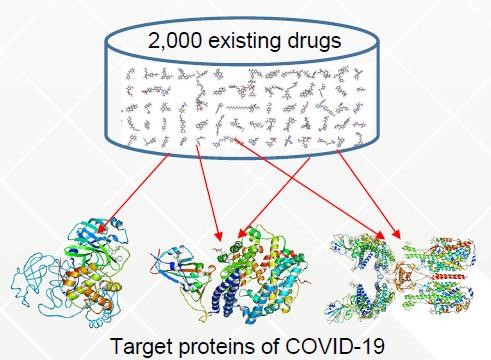
Identification of potential therapeutic agents for COVID-19 using Fugaku (image provided by RIKEN)
While K computer was capable of evaluating several types of drugs, Fugaku can handle approximately 2,000 drug types, which is triple-digit increase of the capacity of K computer. Fugaku’s computational power has exceeded my expectations.
Currently, we are conducting molecular-level simulations with four×2,000-drug combinations. We have completed nearly 80 per cent of calculations for one type of protein, and have been processing calculation results ahead of schedule. These results need to be verified later through experiments.
Professor Okuno's impressions of Fugaku
―― What are your impressions of Fugaku after using it?
If we view a PC as being like an ordinary car, we can view a supercomputer as being like a Formula 1 race car. Usually, if you are given a new PC, you will gradually become familiar with it as you customize it to suit your use. As for the use of Fugaku, it was like driving an F1 car after only one week's preparation.
Even so, I was able to confidently operate it within a short time. I think this is because Fugaku was developed with an emphasis on having all-around capabilities, which allows various kinds of software to run on it that makes it extremely easy to use. I actually perform tasks on Fugaku remotely from my PC at home. This convenience, which I was able to enjoy with K computer as well, is extremely helpful.
Performance 100 times greater than K computer
―― You have previously worked on drug discovery research using the K computer. It is said that Fugaku's performance is about 100 times greater than that of the K computer. Do you see this difference?
There is no doubt that the things we can see with Fugaku are different. Previously, we were able to confirm the crystallized state of a protein bonded with a drug from snapshots. However, each of those snapshots represents only a certain moment in time. In other words, a drug may have actually bonded to a different part of the protein, which is something we have not been able to confirm.
With molecular-level simulation through Fugaku, we can see a process in which protein bonding with a drug can be reproduced. Although we were able to confirm this dynamic action with the K computer to some extent, it may be possible that Fugaku will show it in more detail.
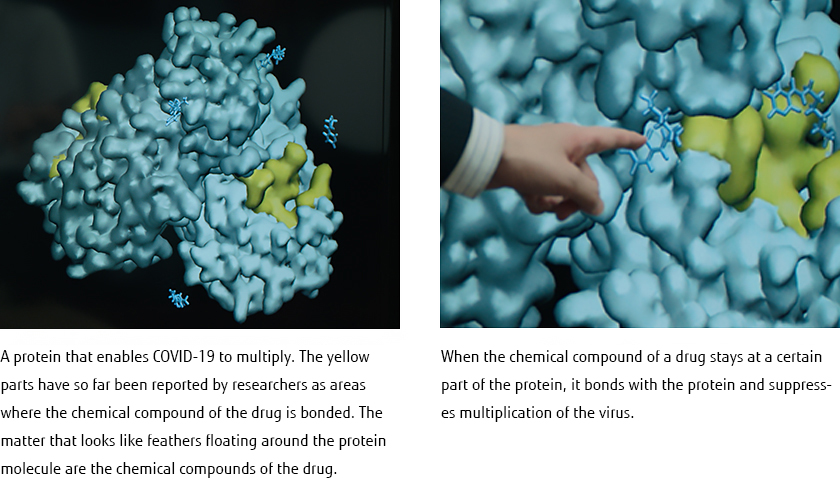
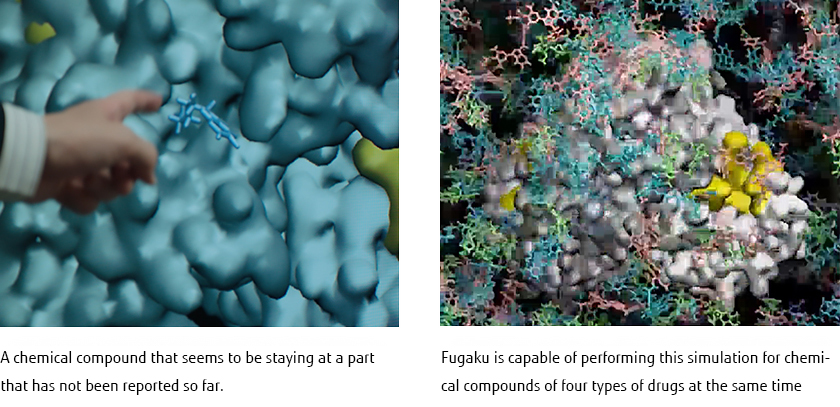
It is said that the human body has approximately 100,000 protein types. If we can confirm how they move using calculations from Fugaku, I think many new things will be revealed through verification by experiments based on this data.
From points to lines
―― If it becomes possible to confirm the process in which a protein bonds with a drug via video, what benefits do you think will be realized in the future?
From the perspective of Fugaku, I believe K computer only allowed us to observe “points”. With Fugaku, it may be possible to confirm processes based on the “lines” formed by connecting such “points”.
The unit of calculation time in a molecular-level simulation is expressed in femtoseconds (femto is 10 to the power of minus 15). Reproducing even several tens of nanoseconds (nano is 10 to the power of minus 9) of a symptom requires tens of millions of calculations.
Thanks to Fugaku's computational power, we can now reproduce the process in which a protein bonds with the chemical compound of a drug as “lines”. Its capability allows us to understand the frequency of bonding, which we were not able to confirm before. We have been focusing on the high frequency of bonding for a long period of time, as it may be a clue for finding the efficacy of a drug.
Connecting Japan's world-class technology to the future
―― Fugaku achieved first place in an international supercomputer ranking in June 2020.
Due partly to a review of government programs, there was a time when the development of supercomputers in Japan was under a dark cloud. Today, however, solving social issues with IT is a global trend.
Especially in the ongoing COVID-19 crisis, IT is vital. I think it is of great significance that the supercomputer development project is helping lead a response to this pandemic.
Because I teach at a university, I sometimes wonder what I can leave behind for younger people.
Since supercomputers, in particular, are the foundation of IT, I think it is important to continue investing in them. I also feel that stopping this important investment will leave younger generations, who will lead our future, no place to play an important role in future events.
Further evolution of Fugaku focused on usability
―― Fugaku is another name for Mt. Fuji. The name symbolizes the supercomputer’s high performance and indicates the broad domains that the new supercomputer will help its users reach, as suggested by Mt. Fuji’s wide conical shape. Do you feel this describes Fugaku?
When compared to the K computer, I think Fugaku is remarkably easy to use. Users may feel awkward with supercomputers, but Fugaku was designed with a focus on usefulness through its all-around capabilities. I think it's so innovative. “Fugaku is a new strategy for supercomputers. It can be put into production because it was developed based on the concept of versatility.”
Before Fugaku, I believe supercomputers were designed with a focus on competing in terms of calculation speed. Due to this, I think they existed in a world far from daily life. Fugaku has been designed and developed for our daily lives, with the aim of further improvements being made in its technology. This supercomputer has been developed with a really interesting concept. I am looking forward to the further evolution of Fugaku.
―― Thank you for your valuable contributions today.




